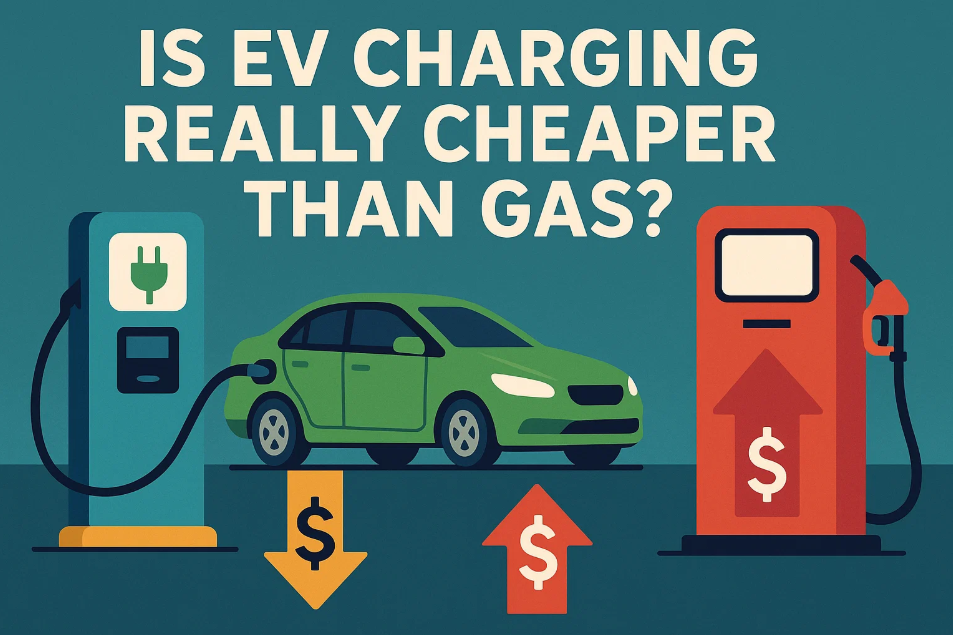2025-07-13
UUGreenPower
0
The global demand for cleaner transportation is driving a rapid shift toward electric vehicles (EVs). With growing awareness of climate change and government incentives promoting sustainability, EVs are becoming a practical choice for more people. However, one question still sparks debate: Is EV charging really cheaper than gas? As fuel prices fluctuate and long-term savings become a key consideration, both individual drivers and businesses are weighing their options. Reliable EV charging solutions are proving essential in making electric mobility both affordable and efficient.

The Upfront Cost vs. Long-Term Savings
When switching to an electric vehicle, the initial investment can seem steep. EVs tend to have higher upfront prices than their gasoline counterparts. However, this is often offset by significantly lower fuel and maintenance costs over time. Traditional vehicles rely on gasoline, which fluctuates wildly in price due to market forces. In contrast, electricity prices tend to remain more stable.
EV charging solutions allow EV owners to recharge their vehicles at home or in commercial locations, often at a fraction of the cost of a tank of gas. On average, charging an EV at home costs between $0.10 and $0.20 per kilowatt-hour. That means a full charge could cost anywhere from $5 to $15 depending on battery size and electricity rates — far less than a tank of gas.
Commercial EV Charging: A Growing Business Opportunity
Commercial electric vehicle charging solutions offer a wide range of advantages, not limited to cost reductions for private motorists. Businesses are increasing their investments in charging infrastructure as a means of attracting customers, supporting the sustainability goals of their employees, and future-proofing their operations of their operations. In addition to providing additional convenience, businesses may demonstrate their dedication to environmentally friendly technology by implementing commercial electric vehicle charging options.
Comparing Maintenance and Operating Costs
Gas-powered vehicles typically require regular oil changes, exhaust system repairs, and other engine maintenance. Electric vehicles, on the other hand, have fewer moving parts and don't require oil changes, resulting in lower maintenance costs. Over the life of the vehicle, these savings can be substantial.
With the rise of intelligent EV charging solutions, users can also track energy consumption and optimize charging times for the lowest rates, further enhancing cost savings. Advanced platforms from many companies even allow for real-time monitoring and predictive maintenance, reducing downtime and operational expenses.
Public vs. Private Charging Costs
Charging electric vehicles at home is often the most cost-effective approach; however, the cost of public and commercial charging systems might vary accordingly. In certain public charging stations, there is no charge, but in others, depending on the location and the speed of the charger, there are premium rates involved. While fast-charging stations may be more expensive, they drastically cut down on the amount of time needed to charge a vehicle.

Conclusion
So, is EV charging really cheaper than gas? The answer is a resounding yes — especially when supported by advanced, reliable EV charging solutions. From daily commuters to commercial fleet operators, everyone can benefit from the lower costs, reduced emissions, and enhanced convenience of electric vehicles.
Brands like UUGreenPower are at the forefront of this transformation, providing innovative commercial EV charging solutions that make going electric more accessible and economical than ever before.
Are Home Charging Stations Worth It?
2025-07-12 NextHow often should you charge your EV at home?
2025-07-14